
Trixie Whitley: “My task as an artist is to stay as close as I can to my own essence”
Songwriting meets a female singer-songwriter whose varied new album ‘Porta Bohemica’ impressed us greatly… and who’s got quite a back-story, too!
We get sent a lot of albums, here at Songwriting Towers, and a lot of them come from female singer-songwriters. But not many of them are as fascinatingly eclectic and varied as Porta Bohemica, the sophomore album from NYC-based Trixie Whitley.
From gentle acoustic opener Faint Mystery, via the Latin-tinged, Moloko-esque pop of Salt, the Florence-like Closer, the dramatic Soft Spoken Words and the trip-hoppy New Frontiers to haunting, melancholy piano closer The Visitor, it’s an album with musical surprises waiting at every turn, and a very impressive offering from a new artist.
Not that Trixie’s exactly a newcomer, mind you. As well as releasing her debut album Fourth Corner in 2014, she’s worked with Tame Impala and The Kills, and is the frontwoman of Black Dub, a fusion outfit put together by legendary producer Daniel Lanois (Dylan, Eno, U2, Neil Young, Peter Gabriel), and featuring renowned session bassist Daryl Johnson and acclaimed jazz drummer Brian Blade. She’s also, incidentally, the daughter of Chris Whitley, a successful blues-rock singer-songwriter and guitarist who sadly died of lung cancer in 2005, aged just 45.
With a background like that, and an album as distinctive-sounding as Porta Bohemica, it seemed only right and decent to get Trixie on the phone to find out more…
 Let’s start with Porta Bohemica – it’s impressively eclectic. Was embracing a wide range of sounds and influences a conscious decision, or did that come about more organically?
Let’s start with Porta Bohemica – it’s impressively eclectic. Was embracing a wide range of sounds and influences a conscious decision, or did that come about more organically?
“Definitely it happens organically… but also very consciously! I think one of the flaws of our culture is we’ve suppressed our natural diversity, and limiting ourselves to thinking in very compartementalised ways has really limited our potential as a species. I tend to think about society and culture from a very philosophical point of view, and that’s where I’m coming from philosophically, so it’s only natural that’s reflected in my work musically.
“So yes, that’s something that, from the beginning, I’ve very consciously tried to translate through my work. I really want to keep up that fascination with the diversity of our existence. And sonically speaking my background was very eclectic, so I try to listen to that and honour it as well.”
Let’s talk about how that philosophy applies to when you’re actually writing songs, then. So you’re sitting there at the – piano? Guitar? Computer?
“I write in different ways: on guitar, on piano, even drums… I don’t have one formula.”
“The most liberating way for me to write is when I’m not thinking at all”
Okay, so you’re sitting there with a guitar one day and you come up with something, say country-ish. The next day, do you say, “Right, today I’m going to write something more dance-y?” or is it just that something more dance-y comes out, and you don’t censor it?
“I think really, my task as an artist is to stay as close as I can to my own essence, and how I define that is to basically tap into the subconsciousness. To not get caught up in rational thought of, ‘I’m going to sound like this’ or ‘I’m going to sound like that’, but to simply serve the music as it is asking to be communicated.
“I find the most liberating way for me to write is when I’m not really thinking at all. And those are the times when it feels the most sincere, as well, and when it actually comes into place the easiest – when I’m not trying, I’m just allowing the music to come out as it is.”
So it’s more about not limiting yourself, than saying “I’m going to do this thing today”?
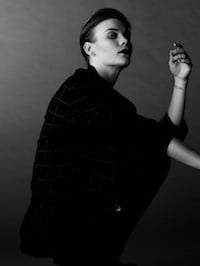 “I think so, because with any art form, if you go, ‘Today I’m going to paint a landscape that looks exactly like this,’ you’re basically confining your creativity. And music is an art form – I don’t approach it as a mechanical process. I mean of course, yes, the mechanics come later, in the studio. But not during the writing process.
“I think so, because with any art form, if you go, ‘Today I’m going to paint a landscape that looks exactly like this,’ you’re basically confining your creativity. And music is an art form – I don’t approach it as a mechanical process. I mean of course, yes, the mechanics come later, in the studio. But not during the writing process.
“I think that’s the problem in music today, is that there’s too much peer pressure of, ‘Who do you sound like? What style do you play?’. And people end up getting caught up in that and making very ordinary-sounding music, whereas the people I admire most are people that changed the musical landscape because they were doing things differently. Someone like a David Bowie, or a Kate Bush, or a Nick Cave. Or PJ Harvey, or Grace Jones. Right now Feist would be a good example of someone I think is pushing boundaries. And I think to do that you have to be absolutely open, creatively.”
When you’re writing, is it normally words first, or music first?
“Well, I’m always writing stuff, writing words. But then when I sit down with the instrument, first I start developing the melody. When the melody starts to come, I’ll sort of mumble along to it, and sometimes words come out and I’m like, okay, this melody is reflecting a certain sentiment. And then I go to my notebooks and usually I try spotting ideas I think suit that sentiment. And then I’ll basically freewheel from there. That’s kind of how the puzzle works for me.”
Are there, then, umpteen hours of recordings where you were trying different lyrics with different pieces of music? Or is it all worked out before you get to the studio?
“No, certainly with this record, it was hours spent in the studio! [laughs] The songs were there first but then the actual sonic work, that’s definitely where the mechanical aspect comes in. Basically hours of developing the sound and the accompaniment. I don’t really have ‘a band’, I work with many different musicians, and while it’s a luxury to have access to so much amazing talent, it also makes the process… interesting, because everyone has a different way of approaching things. If I’ve got a very specific idea about a drum beat, for instance, but the drummer I’m working with isn’t feeling it… then you’ve got to make a call: do we stick with this drummer or do we move on and approach it differently?”
Can you see that ever becoming a problem? Many artists, at some point, face a dilemma between commerce and art, and while there are tracks on your album that have a commercial, accessible feel there are others that are more leftfield or experimental. Can you imagine a time where you might want to focus on a more specific sound, or come under pressure from a label to make your music more amenable to a given audience?
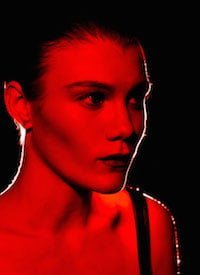 “Can I imagine a dilemma? It’s always been there! But one thing I’ve realised about myself is that I do have a pop sensibility, but also that the stuff I gravitate towards is not Top 40 music, at least not the stuff that’s in the charts right now. So the artists I think I’m most challenged and influenced by have been crossover artists – artists that were able to stay completely true, to do things that were niche yet they had a chance to cross over to a larger audience because they also had radio hits.
“Can I imagine a dilemma? It’s always been there! But one thing I’ve realised about myself is that I do have a pop sensibility, but also that the stuff I gravitate towards is not Top 40 music, at least not the stuff that’s in the charts right now. So the artists I think I’m most challenged and influenced by have been crossover artists – artists that were able to stay completely true, to do things that were niche yet they had a chance to cross over to a larger audience because they also had radio hits.
“That’s kind of how I perceive my own path developing – hopefully! I hope to find a fanbase that understands I’m not going to make the same record 10 times in a row. There have been people that have done it: Kate Bush was a great example, or Bjork. Bjork’s so strange, yet she’s had Top 40 hits. Radiohead would be another example.”
Finally… we’re here to talk about your solo work, not Black Dub, but we can’t help wondering how you came to meet Daniel and be involved in the band…
“Well, when I was about 18 and just starting to do solo gigs, I got an opportunity to open for Me’Shell Ndegeocello. So we did about five shows, and then she came to me at the end of the tour and said look, let’s go in the studio and I’ll help you record your songs. So I did my first EP with Me’Shell co-producing.
“And then as we were finishing the EP, Daniel Lanois happened to be going a show with Brian Blade, and we went along. To be honest, I mostly went to see Brian, because I’ve been playing drums since I was 10 – drums were my first instrument, the piano came later, and guitar came much later, because for years I didn’t want to play the same instrument as my Dad. And Brian was my drum hero, so we went along, and somehow a copy of my EP got passed to Daniel.
“And then months later I was in New York, waitressing, and I got a call one night and it was Dan. And he said, ‘Hey, I listened to your EP, and I have all these grooves I recorded years ago with Brian Blade and Darryl Johnson, and I think you might be the missing link.’ So that was that, basically.”
Interview: Russell Deeks
Porta Bohemica is out on 5 February. To find out more about Trixie Whitley, find her on Soundcloud, Twitter, YouTube and Facebook, or check out her website




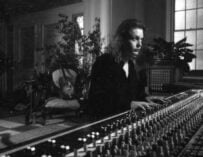
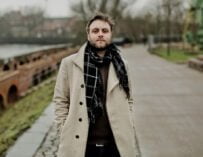
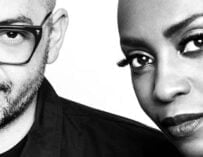
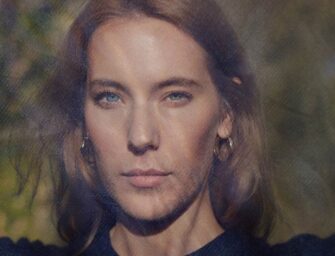
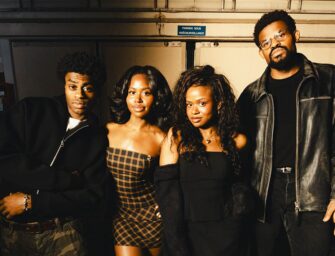


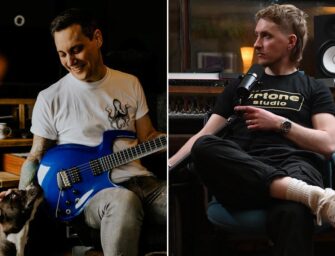






















Related Articles